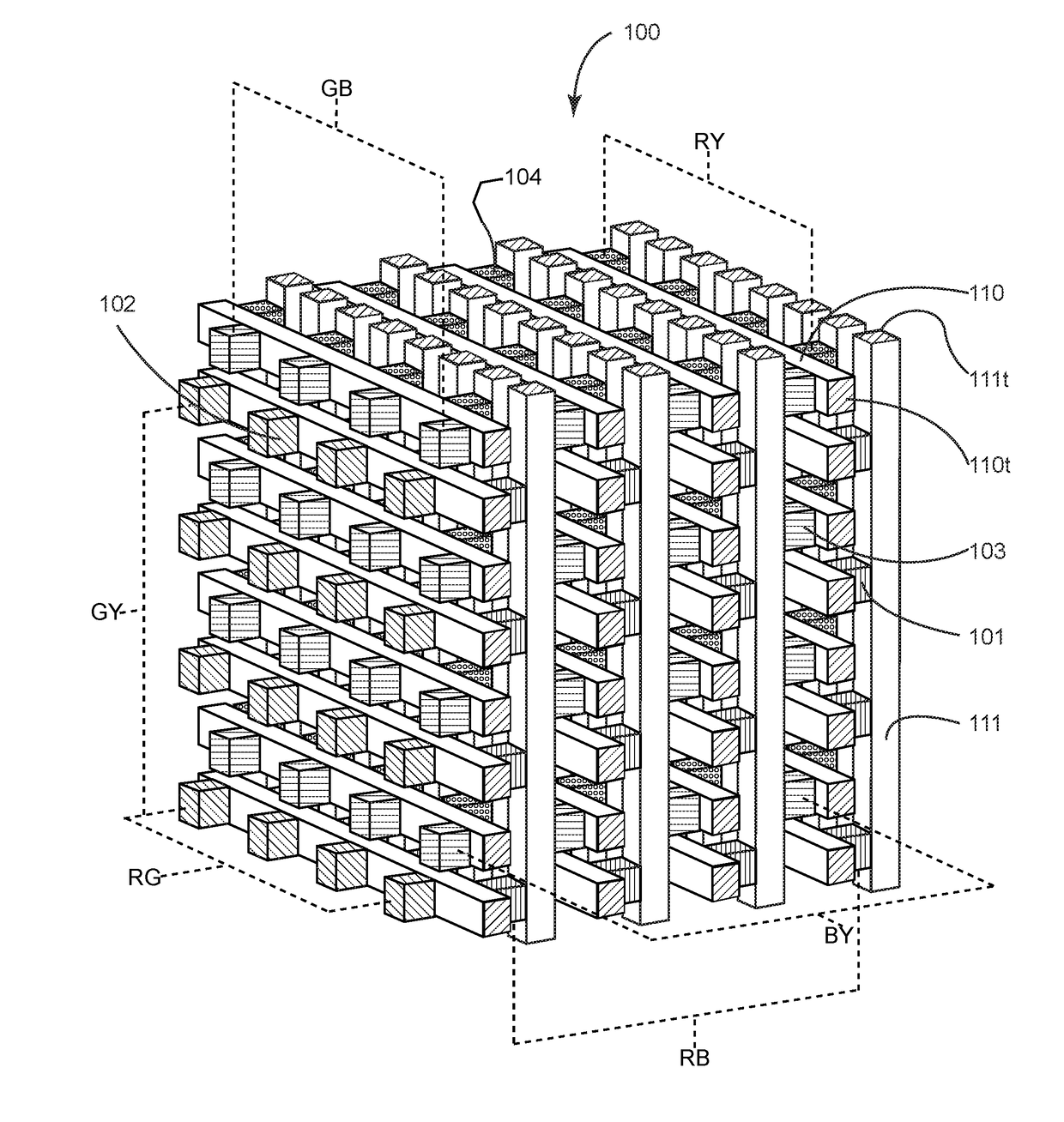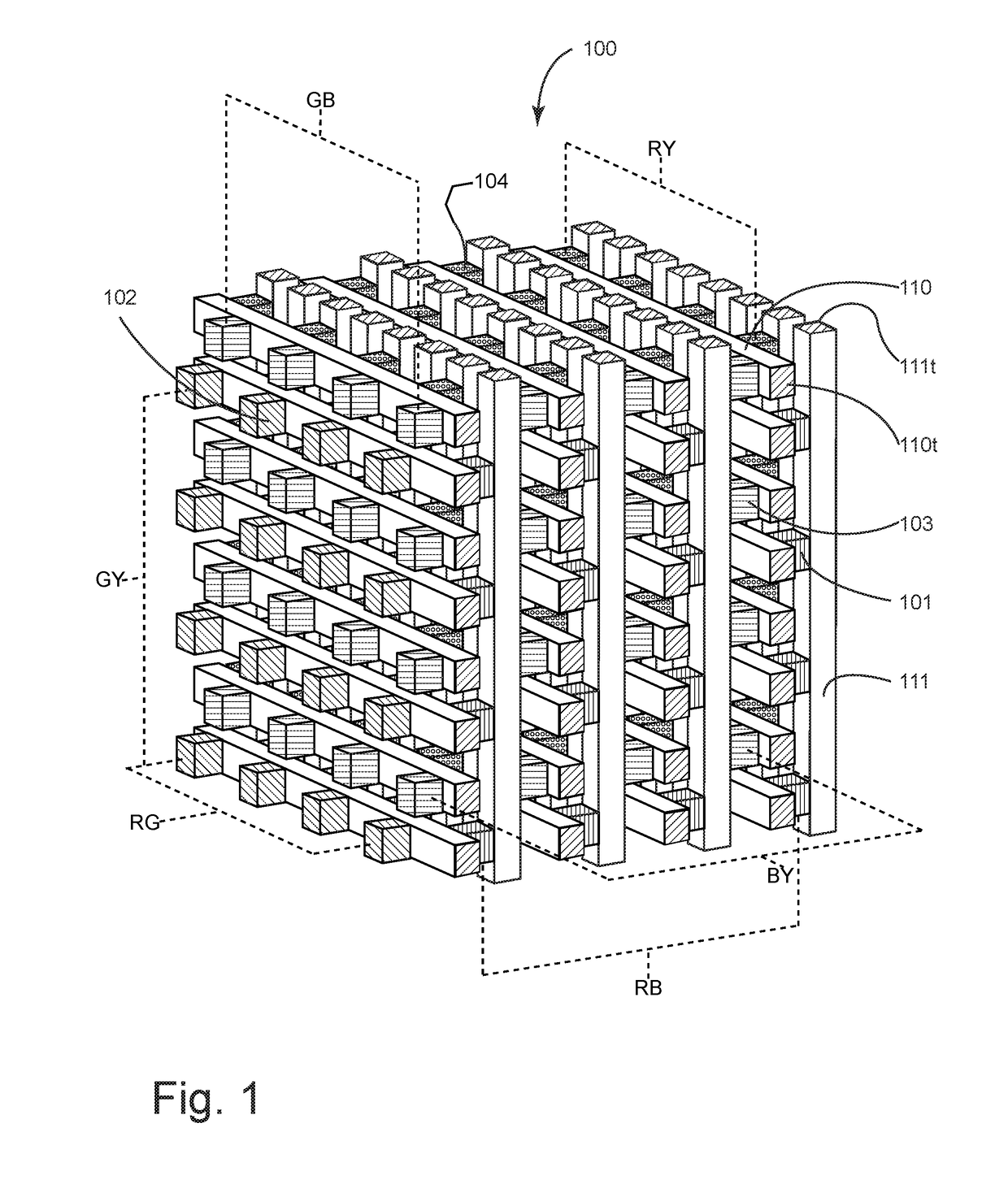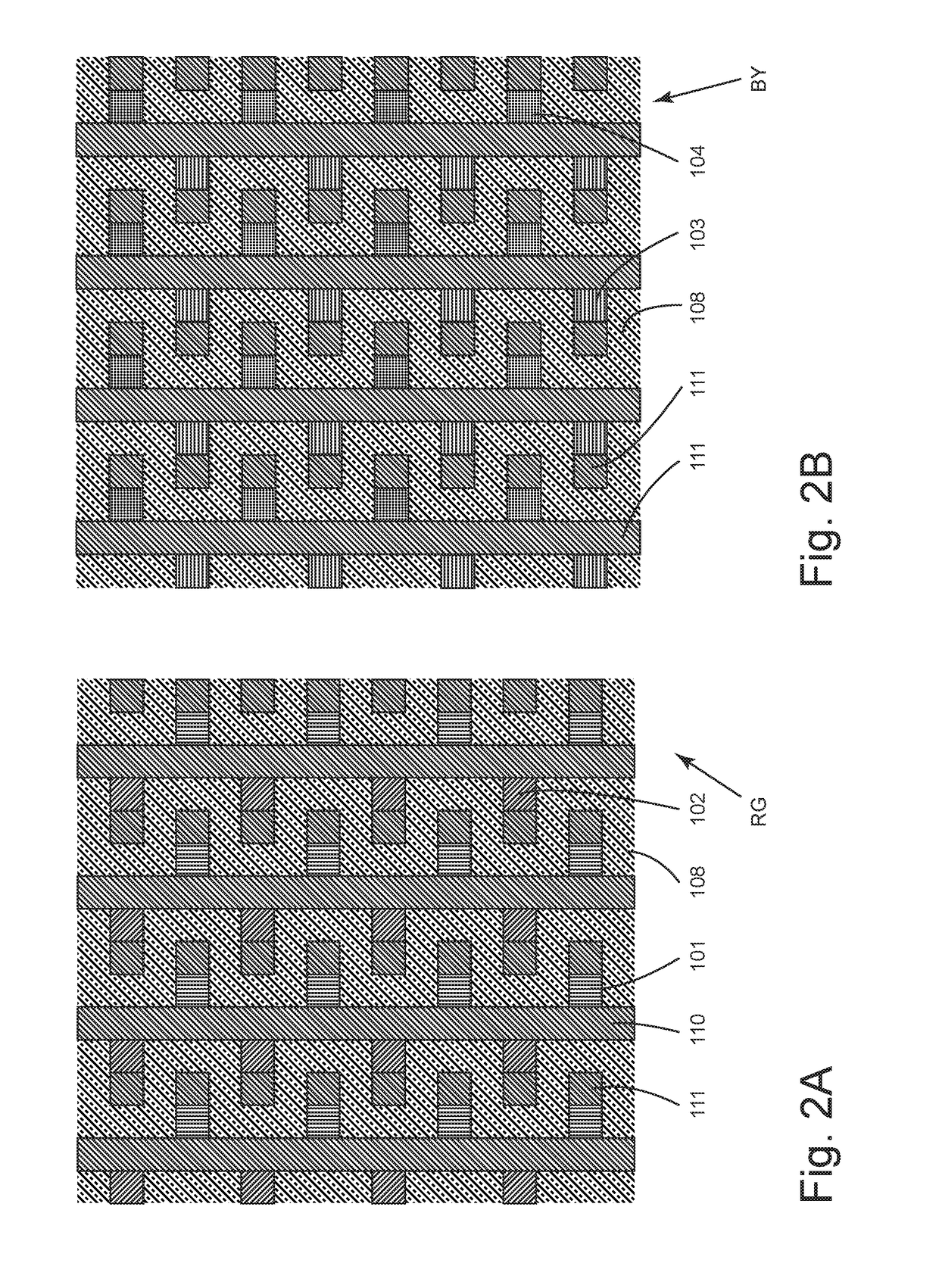Volumetric three-dimensional display
a three-dimensional display and volumetric technology, applied in the field of three-dimensional displays, can solve the problems of inability to employ an arrangement of elements, inability to achieve close-packing of spheres, and inability to achieve spherical voxels
- Summary
- Abstract
- Description
- Claims
- Application Information
AI Technical Summary
Benefits of technology
Problems solved by technology
Method used
Image
Examples
Embodiment Construction
[0017]The figures depict a portion of a volumetric display 100 having a basic face-centered cubic arrangement of emitters 101-104 (which typically comprise the layers [such layers not depicted here] of a conventional inorganic or organic light emitting diode) including red emitters 101, green emitters 102, blue emitters 103, and yellow emitters 104. The structure is arranged so that there are repeating identically-oriented, evenly-spaced, regular tetrahedral shaped voxels comprising one of each emitter. (The tetrahedrons' edges are defined by imaginary lines connecting the emitters' centerpoints. “Centerpoint” as used herein generally just means the geometric three-dimensional center of the emitter structure, but for some emitters the source of light emission may be sufficiently separate from the geometric center as to behoove a mathematical assessment of the position of the center of the source as opposed to an overall diode feature or the like). The conductors 110 and 111 are pref...
PUM
 Login to View More
Login to View More Abstract
Description
Claims
Application Information
 Login to View More
Login to View More - R&D
- Intellectual Property
- Life Sciences
- Materials
- Tech Scout
- Unparalleled Data Quality
- Higher Quality Content
- 60% Fewer Hallucinations
Browse by: Latest US Patents, China's latest patents, Technical Efficacy Thesaurus, Application Domain, Technology Topic, Popular Technical Reports.
© 2025 PatSnap. All rights reserved.Legal|Privacy policy|Modern Slavery Act Transparency Statement|Sitemap|About US| Contact US: help@patsnap.com



